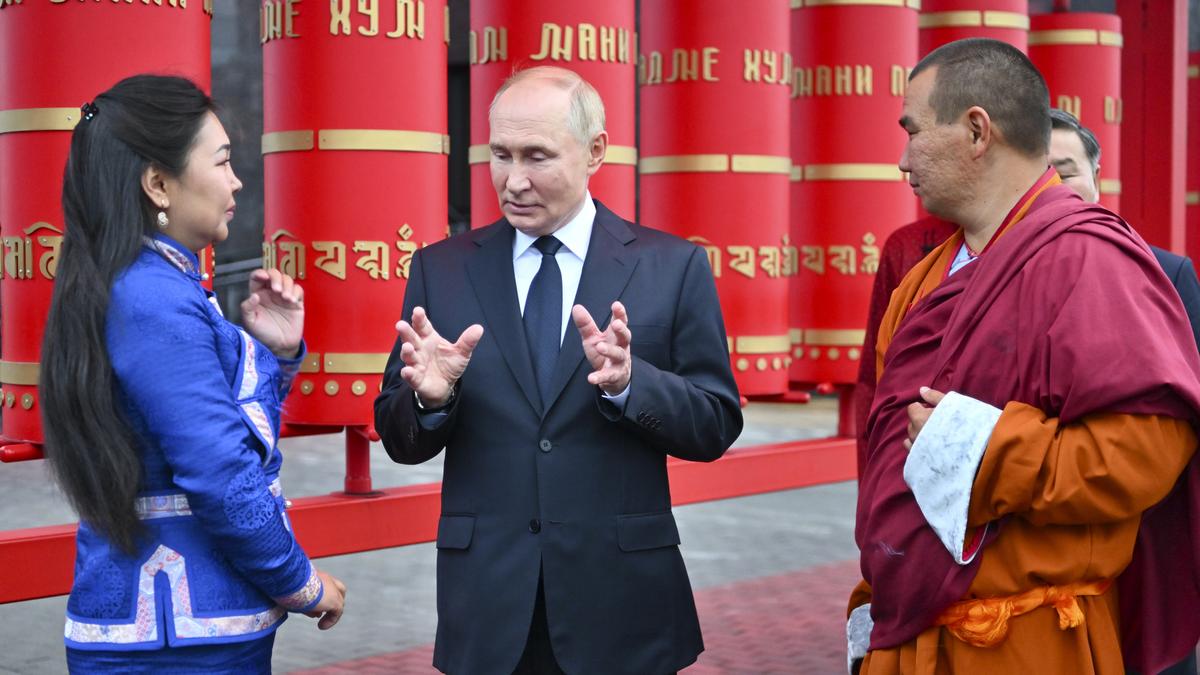Russia’s ongoing war in Ukraine has witnessed a shift in focus with Moscow claiming rapid advancements in eastern Ukraine, particularly in the Donbas region. This comes after Ukraine launched a surprise offensive into Russia’s Kursk region in early August. While Russia acknowledges the incursion, it insists that its offensive in the Donbas continues unimpeded.
Russia’s Claims of Offensive Success in the Donbas
President Putin, in a televised address, highlighted the progress of the Russian forces in the Donbas, claiming a “pace of offensive” not seen in a long time. He specifically pointed to the capture of various villages and settlements, inching closer to the strategic city of Pokrovsk. The capture of Pokrovsk would significantly impact the supply lines for Ukrainian troops in the east, giving Moscow a crucial advantage. The capture of “Skuchne” in the Donetsk region was also highlighted as a victory.
Importance of Pokrovsk
Pokrovsk holds strategic importance for both sides due to its location on a key road that supplies Ukrainian troops and towns across the eastern front. Its capture would represent a significant victory for Russia and could significantly impact the course of the war.
Impact of Incursions
The recent offensive by Ukraine into Russia, though causing hardship in the Kursk region, has not had the desired effect of slowing down the Russian offensive in the Donbas. Putin stated that the incursion had failed in its primary objective.
Russia’s Counteroffensive
In response to the incursion, Russia launched a barrage of missiles and drones targeting various locations in Ukraine, including Kyiv, resulting in damage to a mosque and injuring three individuals. This attack, just before the start of the new school year, aimed to inflict damage on Ukraine’s infrastructure and demoralize the civilian population.
Russian Tactics
This attack serves as a reminder of the volatile nature of the conflict and the unpredictable nature of Russia’s tactics. The targeting of civilian infrastructure raises concerns about the severity of the conflict and its potential humanitarian impact.
Ukraine’s Air Defenses
Despite the sheer number of missiles and drones launched by Russia, Ukrainian forces managed to successfully intercept a significant portion of the attack, showcasing the effectiveness of their air defenses. This demonstrated resilience underlines their commitment to defending their territory against further aggression.
Moscow’s Narrative
While highlighting the advancements in the east, Putin’s statements about the incursion into Kursk highlight Russia’s shift in narrative. Previously, Moscow downplayed the significance of the incursion, describing it as an evolving “situation.” Now, Putin directly addresses it as a failed attempt by “bandits” to destabilize border areas.
Justification for Aggressive Tactics
This shift in rhetoric could be interpreted as justifying Russia’s increasing reliance on aggressive tactics to maintain the narrative of a successful counteroffensive. By characterizing the incursion as a “failed attempt,” Russia aims to solidify its image as the dominant force in the conflict.
Conclusion
The ongoing conflict in Ukraine remains highly volatile, with the recent developments underscoring the shifting dynamics of the battlefield. Russia’s claims of success in the east come at a time when its military faces significant challenges on other fronts, including the ongoing offensive by Ukrainian forces in southern Ukraine.
Take Away Points
- Russia’s claims of advancing in the east suggest that despite Ukraine’s counteroffensive into Kursk, the offensive in the Donbas continues, indicating a change in focus and perhaps a redirection of resources.
- The capture of Pokrovsk remains a key objective for Russia as it holds strategic importance, particularly regarding supply routes.
- The attack on Ukraine, including Kyiv, showcases Russia’s continued reliance on indiscriminate attacks, targeting infrastructure and civilian populations.
- Ukraine’s successful interception of a significant portion of the attack demonstrates the effectiveness of its air defenses and resilience against Russian aggression.
- The conflict remains fluid and the developments in the Donbas should be watched closely to assess their impact on the broader strategic picture.









